Health technology has become a bigger part of CES over the years. While part of that is due to the Digital Health Summit that was added to the tradeshow a few years ago, the other factor is simply consumers’ increasing desire for more health- and fitness-related products. That means the show always has a nice mix of niche products developed to help people with specific diseases or disorders as well as devices that anyone could use to live a healthier life.
Wearable: Your New Favorite Ring?
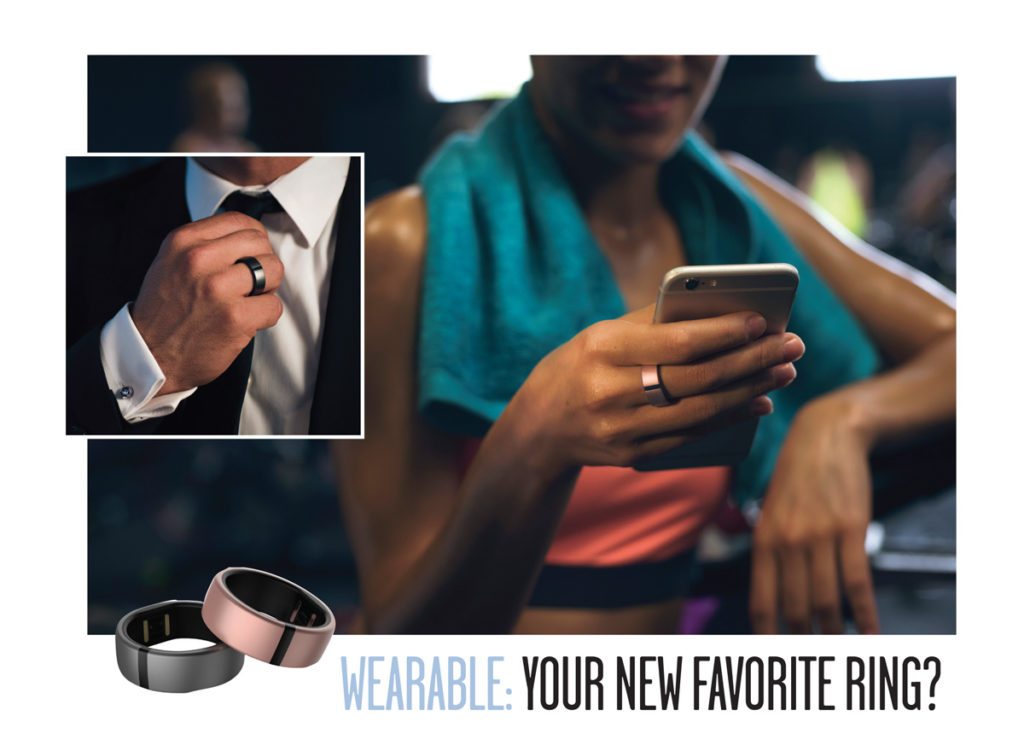 The vast majority of wearables today fit around your wrist, but Motiv wanted to offer something a bit smaller, more stylish, and easier to wear throughout the entire day. The Motiv Ring ($199, this spring) contains an optical heart rate sensor and can track active minutes, activity type, sleep duration, active heart rate, resting heart rate, calories burned, distance, and steps. It is also waterproof, which means you can leave it when washing hands, showering, or swimming, which makes it even easier to keep it on all day.
The vast majority of wearables today fit around your wrist, but Motiv wanted to offer something a bit smaller, more stylish, and easier to wear throughout the entire day. The Motiv Ring ($199, this spring) contains an optical heart rate sensor and can track active minutes, activity type, sleep duration, active heart rate, resting heart rate, calories burned, distance, and steps. It is also waterproof, which means you can leave it when washing hands, showering, or swimming, which makes it even easier to keep it on all day.
Wheelchair: Innovation in Mobility
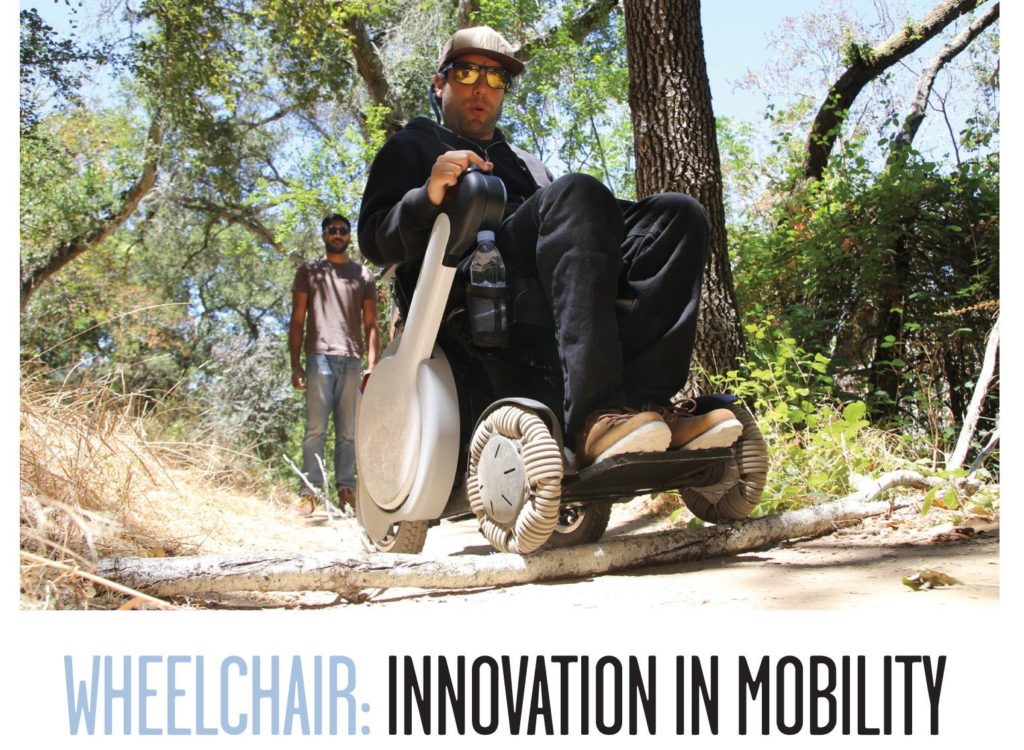 WHILL, which specializes in intelligent personal electric vehicles (EVs), unveiled its new (prescription-required) Model M. This power wheelchair features patented omni-wheel technology that promises increased mobility—the 24 independent rollers allow Model M to move seamlessly in any direction, can easily climb over 3” obstacles, and can power through thick, rough surfaces.
WHILL, which specializes in intelligent personal electric vehicles (EVs), unveiled its new (prescription-required) Model M. This power wheelchair features patented omni-wheel technology that promises increased mobility—the 24 independent rollers allow Model M to move seamlessly in any direction, can easily climb over 3” obstacles, and can power through thick, rough surfaces.
Glucose Monitor: Painless Blood-free Testing
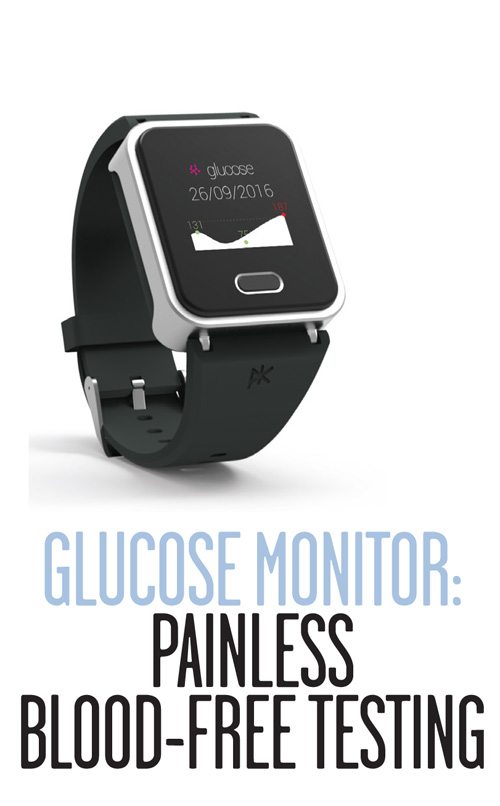 PKvitality showed off the K’Track Glucose, a wearable monitor that is still seeking regulatory approval but would offer diabetics a way to effortlessly and painlessly test their glucose levels without the need to draw blood. Instead, K’Track Glucose is equipped with K’apsul, which uses patented SkinTaste technology to collect and analyze chemical compositions of the interstitial fluid found just below the skin through micro-needles. K’apsul can take unlimited measurements within a 30-day period with results being displayed on the K’Track screen. A new K’apsul can be easily inserted after each 30-day period.
PKvitality showed off the K’Track Glucose, a wearable monitor that is still seeking regulatory approval but would offer diabetics a way to effortlessly and painlessly test their glucose levels without the need to draw blood. Instead, K’Track Glucose is equipped with K’apsul, which uses patented SkinTaste technology to collect and analyze chemical compositions of the interstitial fluid found just below the skin through micro-needles. K’apsul can take unlimited measurements within a 30-day period with results being displayed on the K’Track screen. A new K’apsul can be easily inserted after each 30-day period.
Vision Impairment: Helping the Blind
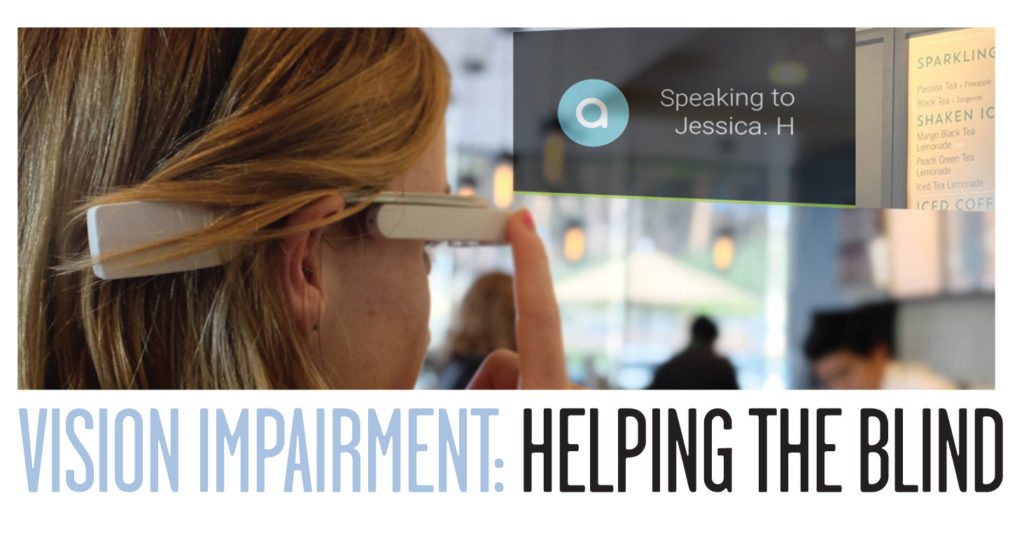 Aira is a service that uses existing technology to help blind and low-vision people more easily navigate the world. The Aira platform equips users with wearable devices such as Google Glass and Vuzix, so when they are in need of help they can contact an Aira Agent who can see the user’s surroundings through the device. In addition to a live video feed, the agent can also see the person’s location on Google Maps alongside a dashboard of other tools to help provide useful information. Monthly subscriptions for the service range between $89 and $329.
Aira is a service that uses existing technology to help blind and low-vision people more easily navigate the world. The Aira platform equips users with wearable devices such as Google Glass and Vuzix, so when they are in need of help they can contact an Aira Agent who can see the user’s surroundings through the device. In addition to a live video feed, the agent can also see the person’s location on Google Maps alongside a dashboard of other tools to help provide useful information. Monthly subscriptions for the service range between $89 and $329.
Adherence: Scanning Your Pill Bottle
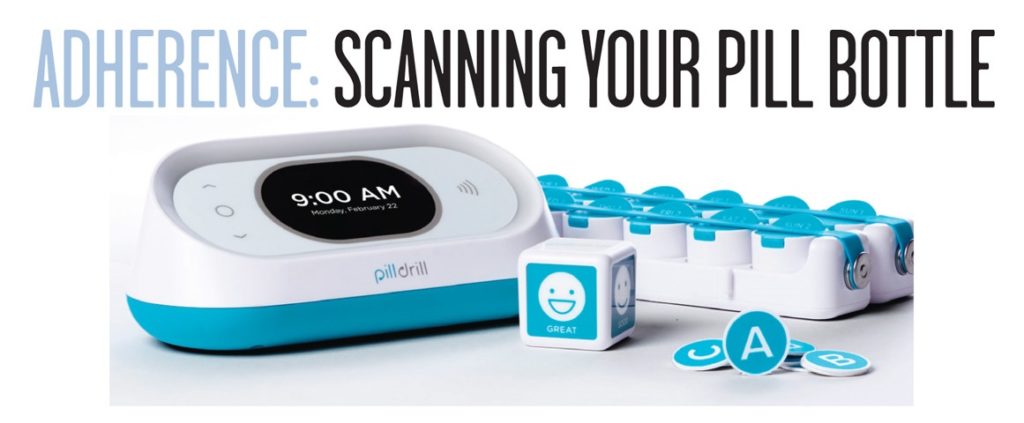 PillDrill ($199) is a system for tracking adherence centered around the WiFi-connected PillDrill Hub, which will issue visual and audio alerts when doses are due. Once a person has taken their medication, he or she simply scans the pill container over the Hub. The PillDrill comes with scanning tags that can be placed on any pill bottle as well as an AM/PM pillbox and weekly pill strip that have built-in scanning tags. Additionally, a Mood Cube with five faces (Great, Good, OK, Bad, and Awful) can be scanned as well to help track a person’s well-being throughout the day.
PillDrill ($199) is a system for tracking adherence centered around the WiFi-connected PillDrill Hub, which will issue visual and audio alerts when doses are due. Once a person has taken their medication, he or she simply scans the pill container over the Hub. The PillDrill comes with scanning tags that can be placed on any pill bottle as well as an AM/PM pillbox and weekly pill strip that have built-in scanning tags. Additionally, a Mood Cube with five faces (Great, Good, OK, Bad, and Awful) can be scanned as well to help track a person’s well-being throughout the day.



